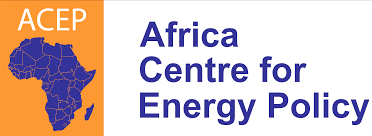A policy tink tank, the Africa Centre for Energy Policy (ACEP) has ncovered that Ghana’s downstream petroleum sector is burdened with excessive regulatory margins and inefficient levies that cost consumers over GHS 17 billion annually, with little to show for national development.
The damning report shows that only GHS 2.4 billion of the GHS 9.7 billion collected in petroleum taxes is available for development projects, with the remainder earmarked for debt servicing in the energy and road sectors.
The report revealed a dramatic increase in regulatory margins between 2019 and 2024 as a particular concern. The Unified Petroleum Price Fund saw a staggering 429% increase, while the Bulk Oil Storage and Transportation (BOST) margin, Primary Distribution Margin, and Fuel Marking Margin rose by 300%, 247%, and 350% respectively.
The report presented by ACEP’s Policy Lead for Petroleum and Conventional Energy, Kodzo Yaotse, criticizes the deviation of BOST from its core mandate of maintaining strategic fuel reserves to becoming a commercial player through its Gold for Oil Program, which now controls 20% of the petroleum import market. “BOST receives margins of nearly GHS 600 million annually while operating tax-free assets and competing with private businesses that pay taxes,” Yaotse noted.
The findings also uncovered significant inefficiencies in the premix fuel subsidy system, with consumption patterns suggesting widespread smuggling. Almost all of the GHS 680 million in annual revenues from the Price Stabilization and Recovery Levy is reportedly being siphoned through the premixed fuel subsidy “by cronies without direct benefits to the fisher folks.”
ACEP has accordingly recommends converting the regulatory margins into tax revenues, which could free up GHS 6.3 billion annually for critical infrastructure and social programmes. The think tank also calls for BOST’s commercialization and listing on the stock exchange to ensure transparency and accountability.
“The current system is essentially a hidden tax on consumers that primarily serves vested interests rather than national development,” said an industry analyst who requested anonymity due to the sensitive nature of the findings.
The report also recommends reforming the National Petroleum Authority’s (NPA) role, suggesting it should focus on monitoring fuel quality and quantity rather than maintaining what it calls “cumbersome fuel tracking systems” and price controls in what is supposed to be a deregulated market.
The report concludes that addressing these inefficiencies could significantly reduce fuel costs for consumers while generating more revenue for development projects, presenting a rare win-win opportunity for both the government and citizens.



